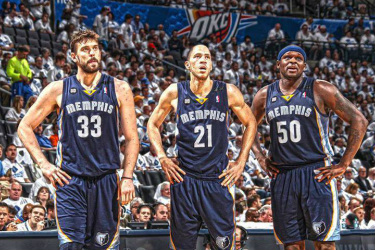
Before getting into the details of this proposed legislation, a bit of history on the matter. The “jock tax” is a term typically assigned to a state’s enforcement of their state taxing power on nonresident athletes who play in their state. For example, the Seattle Mariners with their new 2B Robinson Cano are currently visiting the Los Angeles Angels. Because California deems Cano to have earned some of his $24MM salary while playing in LA, California will tax Cano for the portion of his salary earned in California.
While the “jock tax” is no different than states' general taxation of nonresidents, special regulations have been put into place over the past 30 years specifically relating to the taxation of professional athletes. One such provision is the “duty day” method used by states to calculate how much income an athlete “earns” in their state. Simplified, the “duty day” method calculates how many days a professional athlete spent earning income in State X in comparison to how many overall “duty days” that athlete had that year. Assuming Cano has 200 duty days for this 2014 MLB season, California would tax 3/200ths of Cano’s $24MM salary ($360,000) for this three game series in LA. Once the income earned in California is calculated, California applies their current income tax rates to the income earned to conclude the tax liability Cano will owe them. For this three game series it is estimated this trip would cost Cano $32,783.
One state that varies greatly is Tennessee.
Tennessee only imposes an income tax on interest and dividend income. However, in 2009 Tennessee passed a law creating a privilege tax on professional athletes playing in the state of Tennessee. Under this law NFL players are exempt but NBA and NHL players are required to pay Tennessee $2,500 in taxes for every time they play in Tennessee. This tax is limited at $7,500 or playing three times in the state.
As can be imagined, a tax that exempted one professional sport but subjected two others at a fixed dollar amount instead of a fixed tax rate has been criticized as unfair. In addition, the revenue created from this privilege tax doesn't even go to the state of Tennessee – all $3.5MM of annual revenue brought in under the current law goes to the Memphis Grizzlies and Nashville Predators owners! Also, since the tax is a set dollar amount instead of a set tax rate, Tennessee’s “jock tax” has created scenarios where athletes pay more in taxes to Tennessee than income they received in Tennessee.
This unfairness could begin to come to an end on this week. Since the beginning of 2013, the Player’s Association for the NBA and NHL have threatened legal action against Tennessee for their unfair “jock tax”. This legal action would likely see some success since the constitutionality of Tennessee’s format of their “jock tax” is questionable. Instead of achieving a solution through the court system, it appears the parties have reached a settlement that has been implemented into Tennessee HB 1134 and SB 1247. These bills will immediately eliminate the privilege tax on NHL players and eliminate the tax on NBA players after the 2015-16 NBA season. Additionally, the scenario described above where athletes pay more in taxes to Tennessee than income earned in Tennessee will be limited for the NBA players over the next two seasons. Under the proposed legislation, NBA players must be on a team for 15 days in order to be subject to Tennessee’s “jock tax”. This eliminates the previously documented issue of NBA players signed under the common 10-day contract for the Memphis Grizzlies and subject to Tennessee state income tax near the amount of annual income they made in the NBA.
If you wish, you can read the bill in its entirety or directly follow the proceedings of the Senate bill proposed by Senator Jack Johnson or the House bill proposed by Rep. David Alexander. Video is also available for any activity on this bill.
We will also post updates via our Twitter or Facebook page.
An amendment was added to the bill in March and you can read that amendment to its entirety here. This article reflects the changes brought by that amendment.
 RSS Feed
RSS Feed